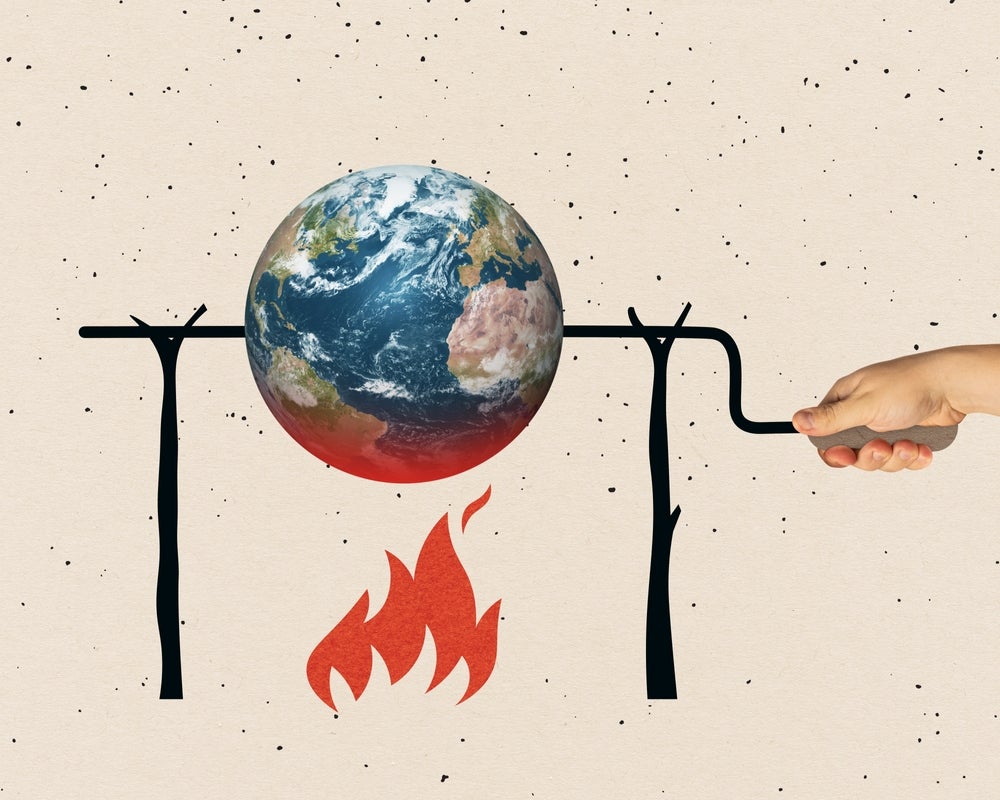
The first Ed’s letter for the last month of the year is always a favourite on the Just Style team, giving us an opportunity reflect on the industry’s successes and failures over the past 12 months and an opportunity to consider what lessons we take into the next year.
And boy, has 2023 been yet another year full of ups and downs.
Up until 2020 it almost seemed plain sailing in the fashion sector. It’s evident, at this point, the Covid pandemic created some sort of domino effect that the industry continues to grapple with. And while it has created a heap of challenges, in some sense it truly was a blessing in disguise, revealing the weak points in the global apparel supply chain which for so long had simply been ignored.
It’s safe to say the biggest issue that was thrust into the spotlight was the fashion sector’s overreliance on China. In the post-Covid era, we’ve seen an accelerated effort by brands and retailers to lower their reliance on China and diversify their apparel sourcing strategies.
At the turn of 2020 – and possibly due to the size of the issue – it appeared this was the industry’s biggest problem. But fast forward to today and it seems like one of those home renovation projects where when you peel back the wallpaper, the plaster underneath comes away with it too.
We’ve seen geopolitical events – like the Russia-Ukraine war – put pressure on energy prices, resulting in a cost of goods surge, fuel shortages, shipping delays and soaring inflation. Higher consumer pricepoints on everything from food to energy has seen many rethink their priorities when it comes to buying apparel.
How well do you really know your competitors?
Access the most comprehensive Company Profiles on the market, powered by GlobalData. Save hours of research. Gain competitive edge.

Thank you!
Your download email will arrive shortly
Not ready to buy yet? Download a free sample
We are confident about the unique quality of our Company Profiles. However, we want you to make the most beneficial decision for your business, so we offer a free sample that you can download by submitting the below form
By GlobalDataOn the back of this, efforts to shift towards slow fashion have almost been reversed. We’ve seen the proliferation of ultra-fast-fashion brands, such as Shein and Temu, where you can buy a t-shirt for less than a cup of coffee, and get it delivered to your door in under a week – hugely appealing to today’s budget-conscious consumer.
But it’s not just wars that have have been a thorn in the fashion industry’s side. On the subject of environmental sustainability and climate change, the past year has witnessed several natural disasters including devastating earthquakes in Türkiye and Morocco, forest fires across Europe and extreme rainfall in Pakistan resulting in flooding that wiped out much of the nation’s cotton crop, creating yet another hiccup in the global apparel supply chain.
There’s also been an air of dissent at the worker level, alerting consumers to the issue of fashion brands’ purchasing practices. Bangladesh, the second largest garment exporter in the world, according to the WTO, has seen turmoil in the past month with violent worker protests over wages. H&M became one of the first brands to announce it would be increasing the unit prices for garment manufacturers to support an increase in wages announced by the government, adding it plans to absorb the rise in costs via product prices. Other brands are being urged to follow suit.
In the coming year, it is likely sourcing diversification will remain high on the agenda for fashion brands, not only as they look to continue lowering their reliance on China but as they look to increase efficiencies and create a more visible and robust supply chain. Many are seeking out suppliers closer to home turf.
Brands and retailers operating within the UK, EU and US markets are also looking to get ahead of upcoming changes in sustainability legislation. The looming introduction of laws around Extended Producer Responsibility (EPR) and IFRS Sustainability Disclosure Standards and the existing Uyghur Forced Labour Prevention Act (UFLPA) in the US, mean fashion players are increasingly likely to be held to account over the goings-on in their supply chains and can no longer plead ignorance.
It also means measured steps around lowering their environmental impact will need to be taken as the fashion industry looks to clean up its reputation as one of the world’s most polluting industries. On the back of this, we’ve seen improvements to existing green measurement tools and new tools emerge to help the fashion industry accurately measure its sustainability efforts and prevent greenwashing.
And buzzwords like Generative AI, digitisation, robotics and digitalisation are likely to be further embraced with pledges to adopt these forms of technology turning to action as the fashion industry leverages their benefits in driving efficiencies and sustainability.
There is a lot of work to be done and it’s important to manage expectations: 2024 is unlikely to be plain sailing. From an editorial standpoint, we can safely assume we won’t be bored.
While we acknowledge it will be a year filled with challenges, it will undoubtedly be one full of lessons and achievements too. We’re excited to see what’s in store and can’t wait to sit down a year from now to review the developments, celebrate the successes and take forward the learnings.
Top stories on Just Style from last week
Fashion execs eye supply chain resilience to navigate 2024 uncertainty
Supply chain resiliency will be a key area of focus for fashion industry executives in 2024, with transparency and communication across all supply chain stakeholders paramount in future-proofing businesses, the latest McKinsey & Co State of Fashion 2024 report reveals.
Regatta refutes ‘forced labour’ claims after ‘Chinese prison ID’ found in coat
British outdoor brand Regatta tells Just Style it “refutes the implication it has used forced prison labour” following claims a UK customer found a Chinese prisoner ID card inside the sleeve of a new coat.
Forced labour, global trade cast shadow on Biden’s US supply chain plan
The US apparel sector commends President Biden’s bid to strengthen supply chains with the creation of the White House Council on Supply Chain Resilience, however concerns remain over his lack of commitment to global trade policies and tackling domestic forced labour.
Surge in interest for Digital Product Passport ahead of mandate
New research shared by the blockchain and web3 solutions developer, Protokol, claims there is a surge in interest for the upcoming regulation mandating Digital Product Passports (DPPs), with its media coverage up 413% compared to the same period last year.
How digital fashion is making physical fashion more sustainable
Fashion industry experts reveal how digital technologies are already being used to lower the fashion industry’s environmental footprint and are forging a path towards more sustainable production.
H&M aims to decarbonise fashion supply chain with climate finance tool
Global fashion retailer H&M Group in partnership with Southeast Asia’s bank DBS has started what it describes as a “first of its kind” green loan programme to accelerate the decarbonisation of fashion supply chains.
COP28: Fashion’s failure to engage suppliers on green plan hinders 1.5°C target
While bold pledges have been made to cut carbon emissions and shift to next-gen materials, a whopping 75% gap in fashion players onboarding their suppliers with their green ambitions could cost the planet dearly.
Fashion experts urge COP28 to deliver ‘actionable steps’ for apparel sector
Fashion industry experts emphasise the need to shift away from discussions to implementation and tangible actions at this year’s COP28.
Uzbekistan textile industry eyes UK with high-level trade delegation
Uzbekistan textile industry eyes UK with high-level trade delegation. The Uzbekistan Textile Association (UzTextile), which represents Uzbekistan’s textile industry, is coordinating a high-profile trade visit to the UK to promote the region’s growing textiles sector.
Signal: Puma successfully trials a fully ‘biodegradable’ sneaker
As the apparel industry makes significant progress in shifting towards more sustainable and circular practices with the use of eco materials and recycling products, the German sportswear brand Puma shares its successful pilot completion of a “biodegradable” sneaker.





